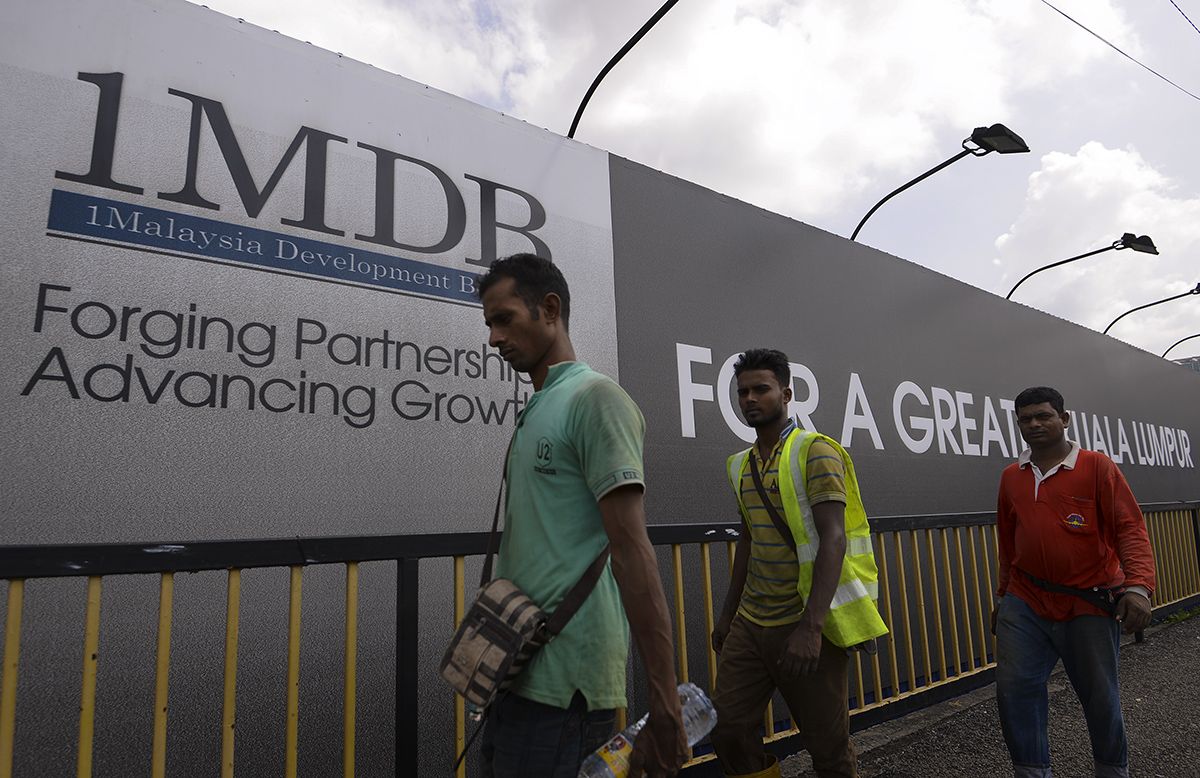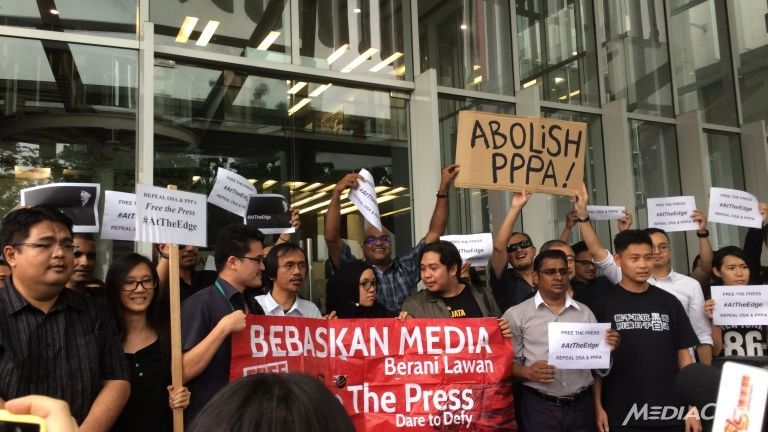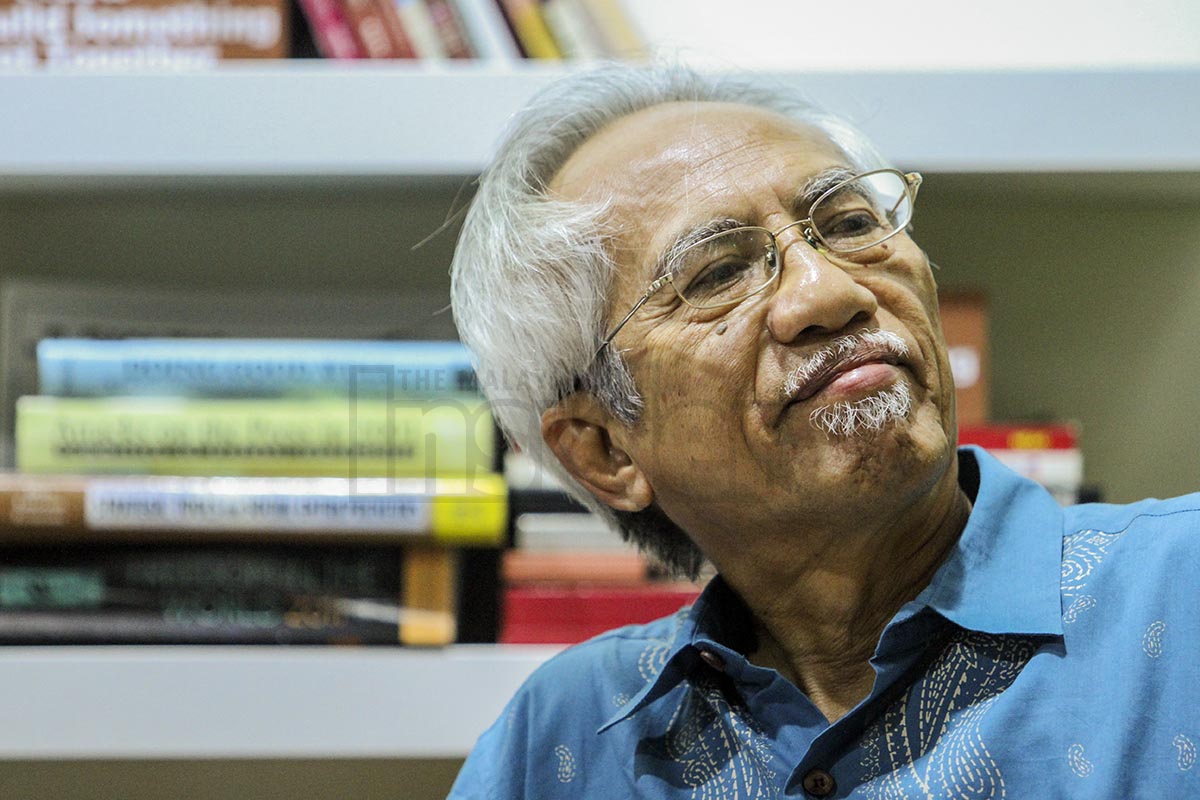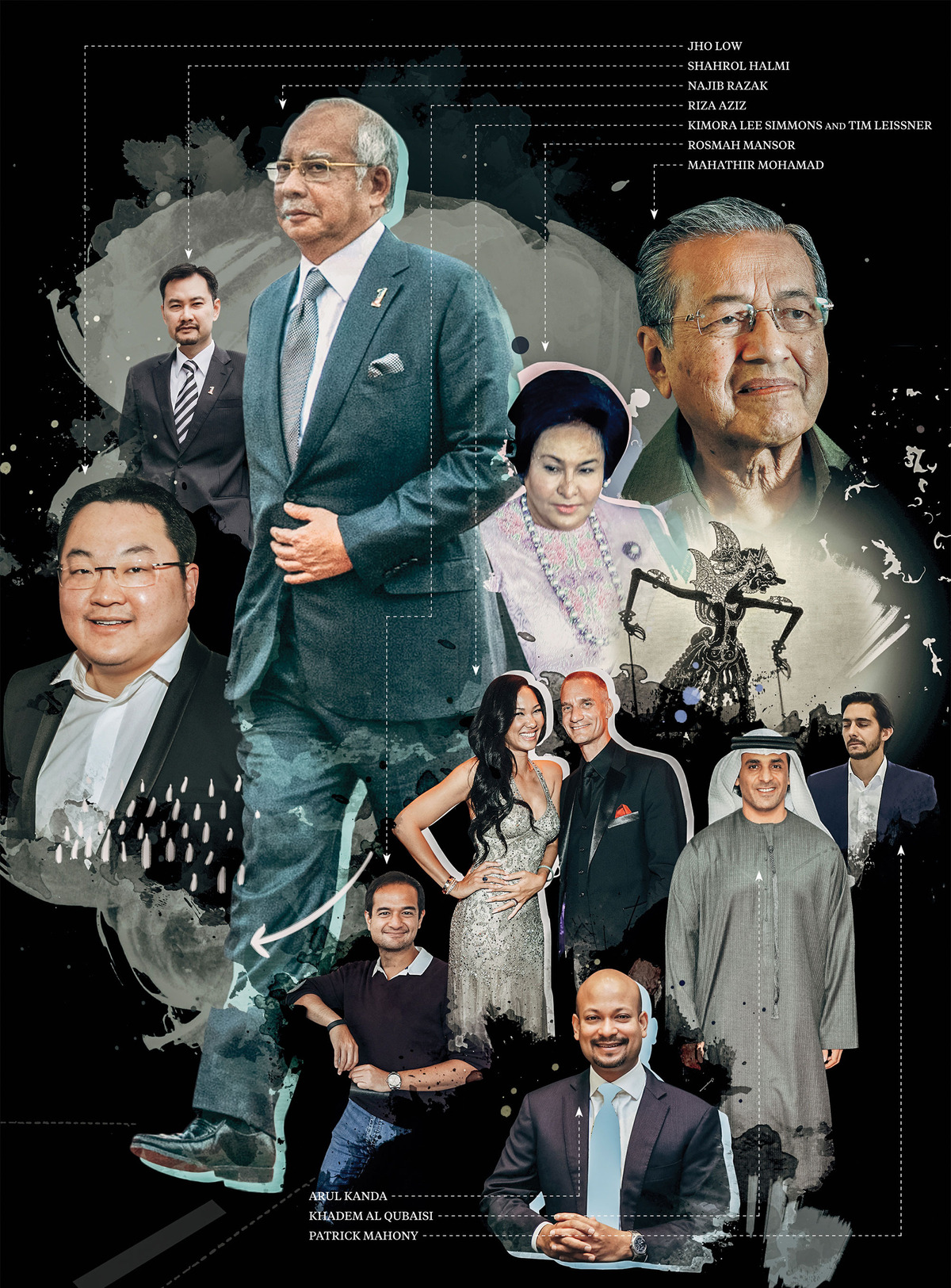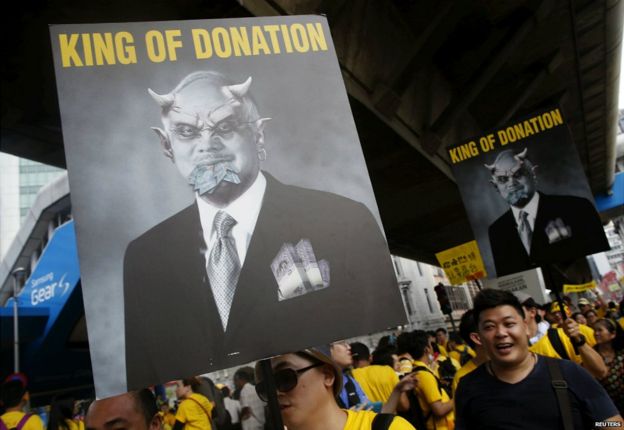"Corrupt, Undemocratic, Extremist." Will Bad Press On Foreign Media Push Najib To Resign?
"...even in the "bad old days of the Mahathir regime", the negative reporting did not reach this extent."
Over the past five decades, Malaysia has seen some glorious days, with a great number of reports and coverage by prestigious foreign media on our successes in striving to be a first world nation
In the span of almost 60 years since independence, we have managed to carve a name for ourselves as a fast-growing, stable and diverse nation, known for the warmth of its people.
Successes for the country that came in the form of mostly great Malaysians, achieving internationally acclaimed awards, idyllic tourist spots and the friendly democratic ties we share with the world's super powers, have been greatly praised by international media.
However, recent times have proven that media reports on the happenings in Malaysia are starting to reflect the brewing political turmoil in the country, with many questioning local political leaders on the growing instability and scandals here
What started as a slow uprising against the longest ruling party of Malaysia, Barisan Nasional (BN), has grown into a multitude of protests against the leader of its party, Prime Minister Datuk Seri Najib Razak, who is currently embroiled in a multi-million dollar corruption scandal among many other issues.
From the terrifying murder of Mongolian national, Altantuya Shaariiibuu, to the most recent RM2.6 billion "donation" from a Saudi national, PM Najib Razak has been tangled in a series of unresolved scandals.
While foreign media have reported on Malaysia's stringent laws on freedom of speech and press in the past, it is our political and corruption scandals that are making headlines globally now
The current situation is such that, a simple Google search on Malaysian news would give you an array of articles on all the undemocratic issues the nation is facing now.
A report published by one of America's oldest English dailies, the Wall Street Journal, in July 2015, revealed that PM Najib Razak has allegedly been involved in the mismanagement of the debt-ridden state fund 1MDB which has led to an amount of RM2.6 billion ending up in his personal account.
With the whole world scrutinising our shaky situation brought on by criminal activities that are crippling the nation's stability, political analysts spoke about how the government is struggling to contain the damage of these issues
Head of think tank Centre for Policy Initiatives, Lim Teck Ghee, said the main concern now was that foreign investors and businesses will review their positions while some will decide not to park their money here under the current unstable conditions.
He said that while Putrajaya appears not to care publicly, there was concern in the government and within the civil service on how to contain the damage.
He added that while it was business as usual for now, other stakeholders would start to speak up when public sentiment turns drastically against the prime minister.
"Once the flow of investments dry up, the ringgit plunges further and public sentiment against the PM takes a turn for the worse, we will see a response from major stake players other than the PMO," Lim said, referring to the Prime Minister's Office.
"The foreign media could say whatever they wanted then, but the impact on domestic politics was not that great, the people were more or less behind the government... and if the head of government is credible, he does not have to depend on his ministers or his ambassadors to defend him," said veteran journalist A Kadir Jasin.
"But unfortunately, what we are seeing now is that the ministers who are talking on his behalf are not too credible," Kadir said.
Kadir did not mention names, but Communications and Multimedia minister Datuk Seri Salleh Said Keruak recently accused Switzerland’s attorney-general of breaking protocol and circulating misinformation alleging that billions of dollars had been stolen from 1Malaysia Development Bhd (1MDB).
Also, Malaysian ambassador to the UK and Northern Ireland Datuk Ahmad Rasidi Hazizi defended Najib after the prime minister's leadership was labelled "disastrous" by the Financial Times (FT) newspaper. Kadir said foreign media carrying negative news about Malaysia were "credible and highly respected" agencies and papers in their own countries.
"We should be worried about what the people are thinking and how they are reacting to the bad news about the country," added Kadir.
Meanwhile, Dennis Ignatius, a Malaysian diplomat that has served for almost 36 years worldwide, warned that the growing negative press on Malaysia's troubles will destroy and taint our reputation as a moderate, progressive nation
“Today, we are viewed as corrupt, undemocratic, unstable and retrogressive, a nation heading towards extremism and intolerance,” the former ambassador to Canada told The Malaysian Insider through email.
Ignatius, who also served as ambassador to Chile and Argentina, said Malaysia's high commissioner to UK could push the government line in letters to British newspapers all he wanted, but this would only go down well with the Umno crowd at home and not with anyone else.
He added that politicians these days said things to burnish their own credentials within the party to score cheap points at home rather than try to win arguments abroad.
Dennis reminded that no matter how an ambassador tries to "spin the truth" to save the country's reputation, reports by trusted newspapers such as the Bloomberg or Financial Times will continue to greatly influence the people's opinions
Bloomberg's photo summary of all the people that are allegedly involved in the 1MDB scandal
Image via BloombergAmbassadors can try to spin the truth (didn’t Lord Acton once say that an ambassador is an honest man sent abroad to lie on behalf of his country?), but there’s only so much they can do especially when the news from home is so devastating, when the facts on the ground are so compelling and when the government itself is being evasive and unconvincing.
The strategy of buying their way out of bad press by hiring slick PR firms to plant feel good stories in the foreign media has undoubtedly backfired on them. Most western media are now wary of such PR people though there may still be unscrupulous journalists willing to obfuscate the truth for money.
And don’t forget that it is now much harder for governments to spin the facts because of the Internet and things like Facebook and Twitter. Local news goes global in an instant; opinions are formed and conclusions are made based on group connections that are extremely difficult to change. Undemocratic governments are rightly fearful of the Internet and seek to control it.
Are we to expect unrest and revolt thanks to the continuing revelations by the media on local politicians' wrongdoings?
Wong Chin Huat, a fellow at think tank Penang Institute, said that in any other country, such a continuous flow of bad press would have led to widespread public protest, followed by a revolt within the ruling party.
"But the streets of Kuala Lumpur and provincial capitals are calm as if nothing has happened. In fact, Najib has a stronger grasp of his party," added Wong.
For a detailed report on everything related to the 1MDB scandal, read our coverage on the issue here:

